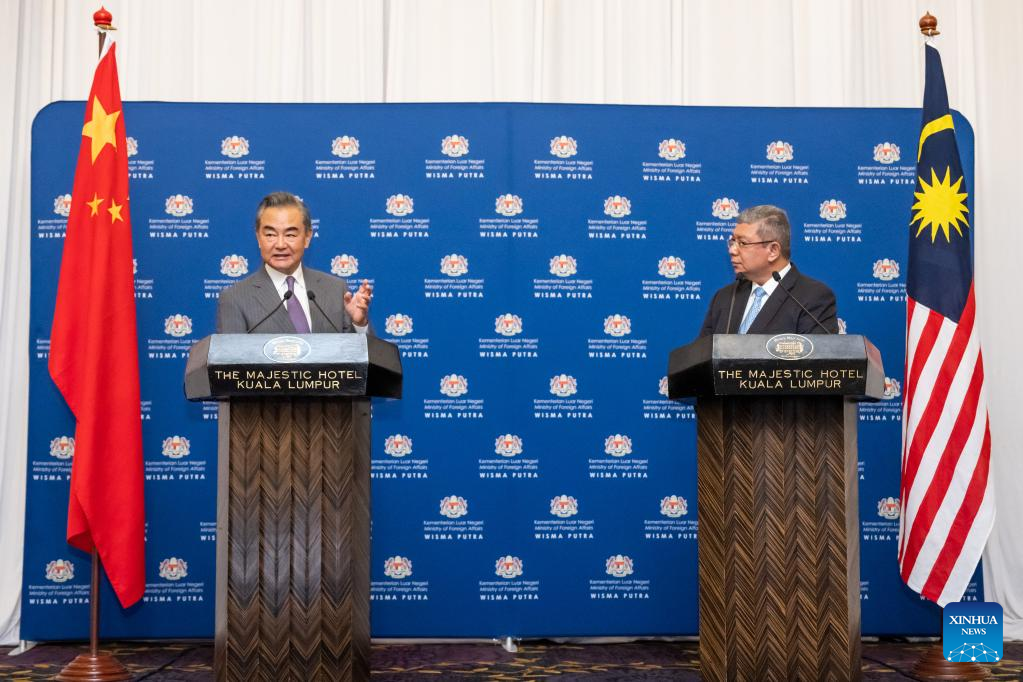KUALA LUMPUR, July 12 (Xinhua) — Visiting Chinese State Councilor and Foreign Minister Wang Yi said here on Tuesday that China and Malaysia have reached a five-point consensus on further developing their relations.
At a joint press conference with Malaysian Foreign Minister Saifuddin Abdullah after their meeting, Wang said China-Malaysia ties are witnessing new opportunities for development.
China is ready to work with Malaysia to set new goals and priorities for bilateral relations so as to elevate their ties to a new high, he said, noting that both sides have reached a series of important consensuses.
First, the two countries have agreed to move toward building a China-Malaysia community with a shared future under the concept of “the world is one family.” Both sides are working to enrich their comprehensive strategic partnership in the new era and open up broader prospects for the future development of bilateral cooperation.
Second, China and Malaysia have agreed to jointly build the Belt and Road with high quality and implement the Global Development Initiative. They will take the 10th anniversary of the “Two Countries, Twin Parks” initiative as an opportunity to establish a pioneer zone for trade and economic innovative development, and a demonstration zone for industrial capacity of the Belt and Road cooperation. Both countries will also foster new growth points such as digital economy and green development, and jointly enhance competitiveness and development level.
Third, the two sides have agreed to dovetail their blueprints for development, strive to push forward the East Coast Rail Link and development along the mega rail project, and maintain communication on the construction of the Malaysia-Singapore high-speed railway. They also discussed the long-term goal of the pan-Asia railway network.
Fourth, China and Malaysia have agreed on practical measures that benefit the two peoples. China is willing to import more quality agricultural products from Malaysia, and help international students from Malaysia return to China to resume their studies. It also plans to significantly increase direct flights between the two countries.
Fifth, the two sides have reached a political consensus on safeguarding regional peace and stability. They will jointly advocate true multilateralism, practice open regionalism, uphold the ASEAN centrality, reject bloc rivalry and the Cold War mentality, speed up consultations on the Code of Conduct in the South China Sea, and jointly build the South China Sea into a sea of peace and cooperation.
China is ready to work with its ASEAN partners, including Malaysia, to deepen their strategic mutual trust and strengthen strategic coordination, so as to maintain regional stability and work for common development, Wang said.
Wang wrapped up his Asia tour Tuesday, which has taken him to Myanmar, Thailand, the Philippines, Indonesia and Malaysia. ■













